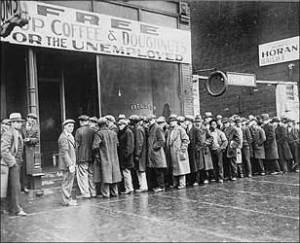Cultural Cocktail Hour
During an economic downturn is Art a luxury or a necessity?

By Leticia Marie Sanchez
“When I get a little money, I buy books;
And if any is left, I buy food and clothes.”
~ Desiderius Erasmus ~
The Los Angeles Times reports that the troubles of the Pasadena Symphony, Opera Pacific, and the Geffen Contemporary represent but a few examples of artistic collateral damage in Los Angeles. When the economy goes down, arts are the first to get slashed from any budget. People simply cannot afford the arts, that muse who sits too lofty on Mazlow’s hierarchy of needs. Or can they?
A quick observation of Pasadena’s Old Town on a recent Saturday evening reveals crowds with still-disposable incomes huddled inside the Cheesecake Factory waiting to spend their dollars on a caloric feast. Let them eat cheesecake. Lines of designer label-clad youth still line up on Sunset Boulevard outside of the latest club du jour, flashing wads of cash at the barbarians at the gate in order to have the privilege to spend even more money on alcohol, cover charges, deafening music, and the opportunity to become desensitized.
Therefore, many still have the economic means to get desensitized while denying the opportunity of refining the senses through the symphony, the opera, or fine art. The reduction of the arts in the City of Angels is not an issue of finance; it is an issue of priorities. A friend from Russia once remarked to me, upon seeing a vast sea of silver patrician heads last year in the audience of the Pasadena Symphony, that in Moscow concerts were not the exclusive domain of well-heeled patrons, those on the upper echelons of the social ladder. Families of modest means would dine on cabbage soup for a week in order to be able to take their children to see the virtuoso Vladimir Horowitz in concert.
One need only to look at Venezuela, a country where the average income is a mere $3,490 a year, and, where the youth symphony embodies a national priority. More than 400,000 of Venezuela’s youth have participated in this program, saving themselves through musical dedication and discipline from a life of gangs, criminality, and destitution. In an interview with the Boston Globe, Venezuelan conductor José Antonio Abreu declared that musical programs in Venezeula functioned as a “weapon against poverty.” In Venezuela, classical music represents a vital component of the popular culture and progress, not a sanctuary for economic elites. If only many Angelenos could look at classical music and fine arts through the same lens: not as a luxury item but as a central building block of the social fabric and future of our city.
The Dutch humanist and scholar Desiderius Erasmus once remarked, “When I get a little money, I buy books; and if any is left, I buy food and clothes.” Unfortunately, in Los Angeles, this proverb exists in the reverse. Citizens first shell out money for dinners, libations, or a fetching new outfit, with nothing left for the Grapes of Wrath (an opera now cancelled by Opera Pacific) or the holiday concert at the Pasadena Symphony.
The arts crisis in Los Angeles is not a reflection of the economy; it is a reflection of ourselves: our desires to feed our bodies at the expense of nourishing our souls.
For LA TIMES report on struggling arts organizations:
http://www.latimes.com/business/la-et-artswoes7-2008nov07,0,3849403.story













